The Samsung Galaxy S21 hasn’t had much competition yet this year, but with the launch of the Asus ROG Phone 5, one of its first 2021 rivals has arrived.
The ROG Phone 5 is built for gamers, but that means it packs enormous amounts of power, a big battery, and most of the other things you’d expect from a flagship phone. So whether you’re a mobile gamer or not, it could be worth considering.
But how does it compare to the Samsung Galaxy S21? To answer that question we’ve compared these two phones on every front, including design, screen, camera, battery, power, and more, so you can see for yourself which is the right fit.
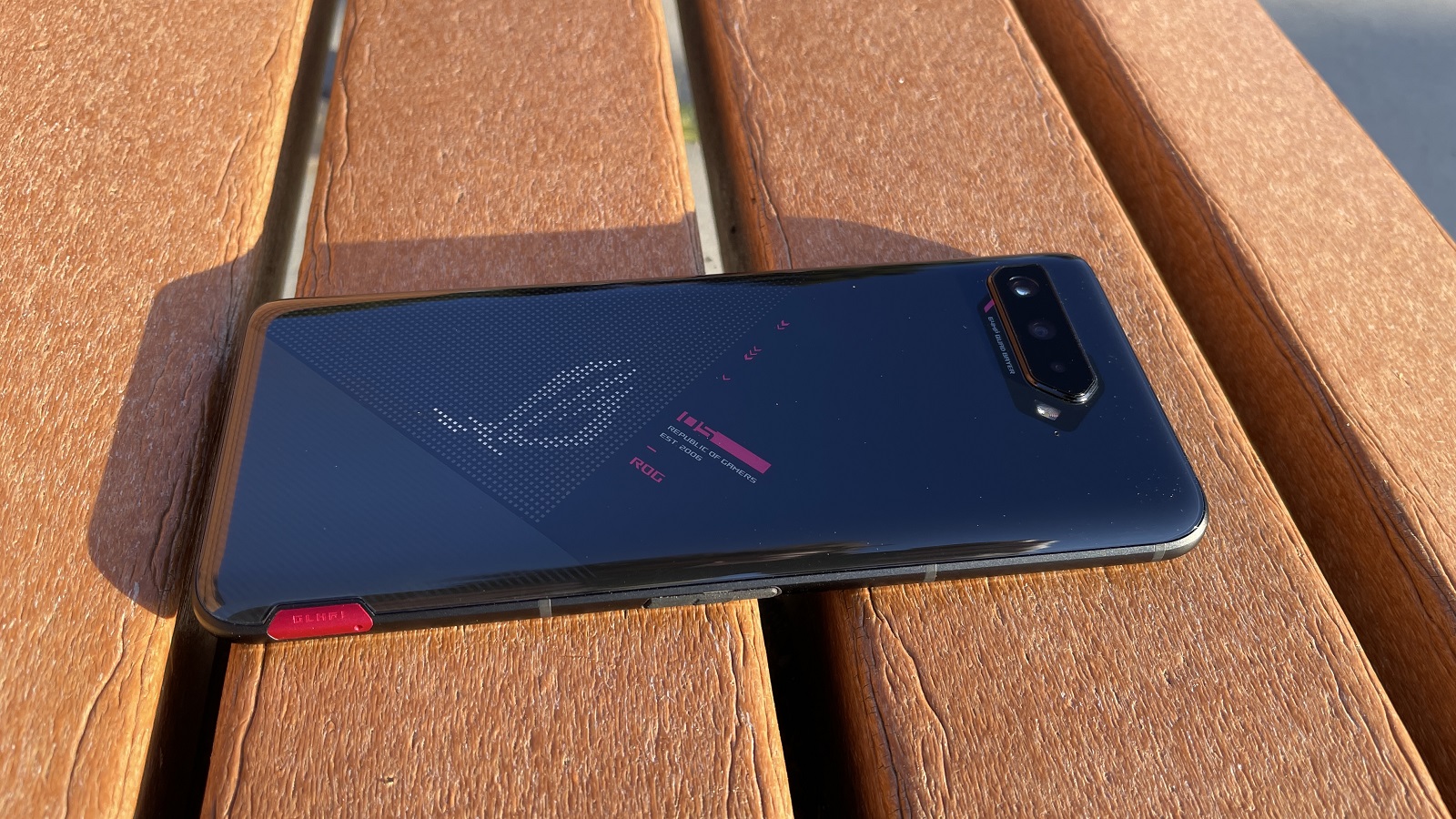
Design
The Asus ROG Phone 5 isn’t a subtle phone. Its glass back has an RGB logo which can display two colors at once and supports eight different lighting schemes. A triple-lens camera runs horizontally along the top of the rear, and around the front there’s a flat screen with slim bezels above and below it. The front camera is housed in the top bezel, so there’s no notch or punch-hole.
The phone comes in Phantom Black and Storm White shades, and it’s chunky and hefty at 172.8 x 77.2 x 10.29mm and 238g.
The Samsung Galaxy S21 meanwhile stands out a lot less, as there’s no RGB lighting on its fairly plain back, and it has a plastic rather than glass rear. Its triple-lens camera runs vertically down the left edge of the back, so that aspect looks different too, and around the front there’s a punch-hole camera – and therefore less bezel than on the ROG Phone 5.
The Samsung Galaxy S21 additionally benefits from IP68 certification, meaning it’s water resistant to depths of 1.5 meters for up to 30 minutes. You don’t get any such protection on the Asus ROG Phone 5.
Samsung’s phone is also available in more colors, with Phantom Gray, Phantom White, Phantom Violet and Phantom Pink on offer, and it comes in at 151.7 x 71.2 x 7.9mm and 171g.
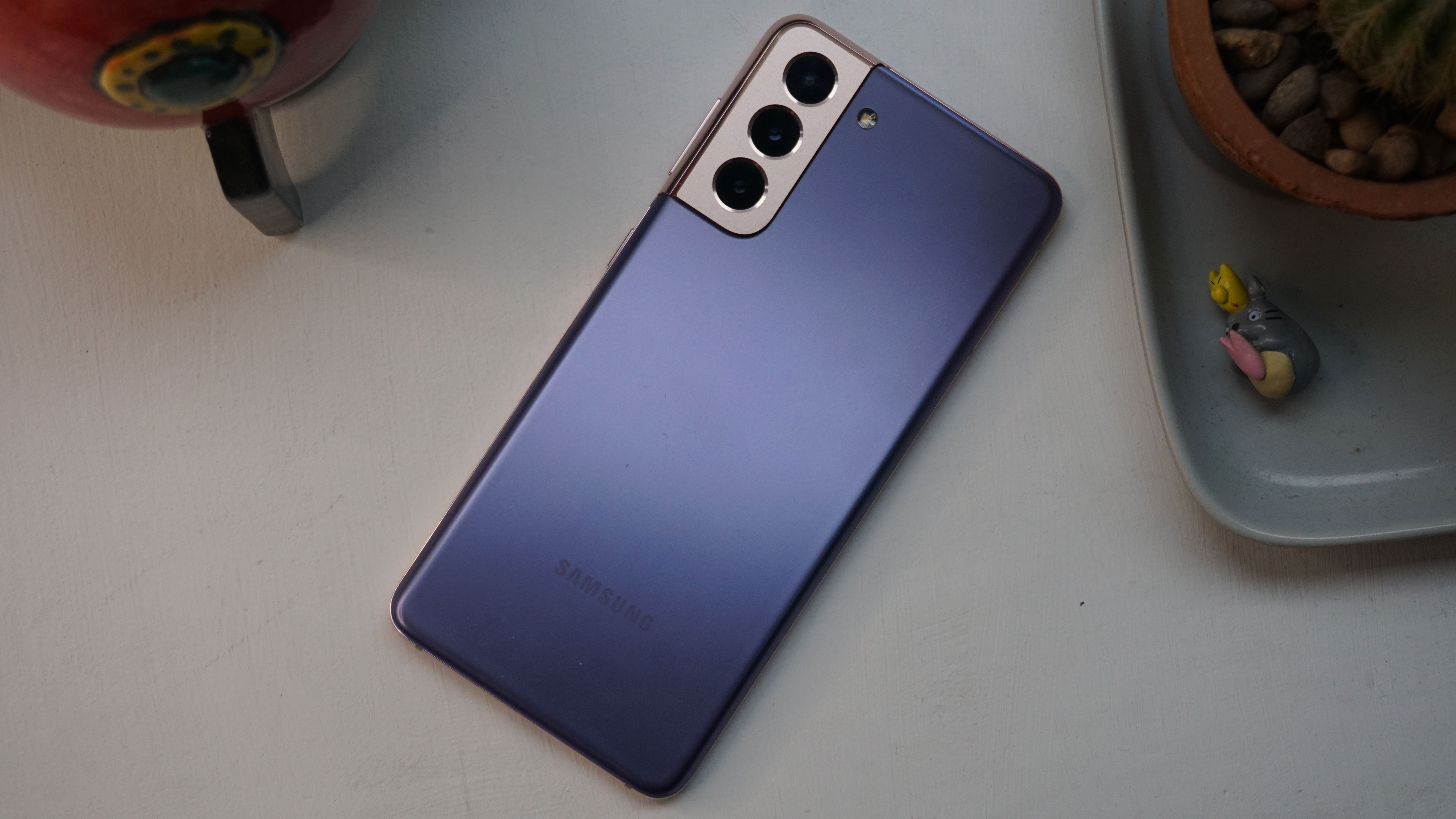
So the Samsung Galaxy S21 is smaller, lighter and thinner than the Asus ROG Phone 5. It's also better protected from the elements, available in more colors, and sports a more low-key design. But with its flashy appearance and glass back, the Asus ROG Phone 5 arguably looks slightly more expensive.
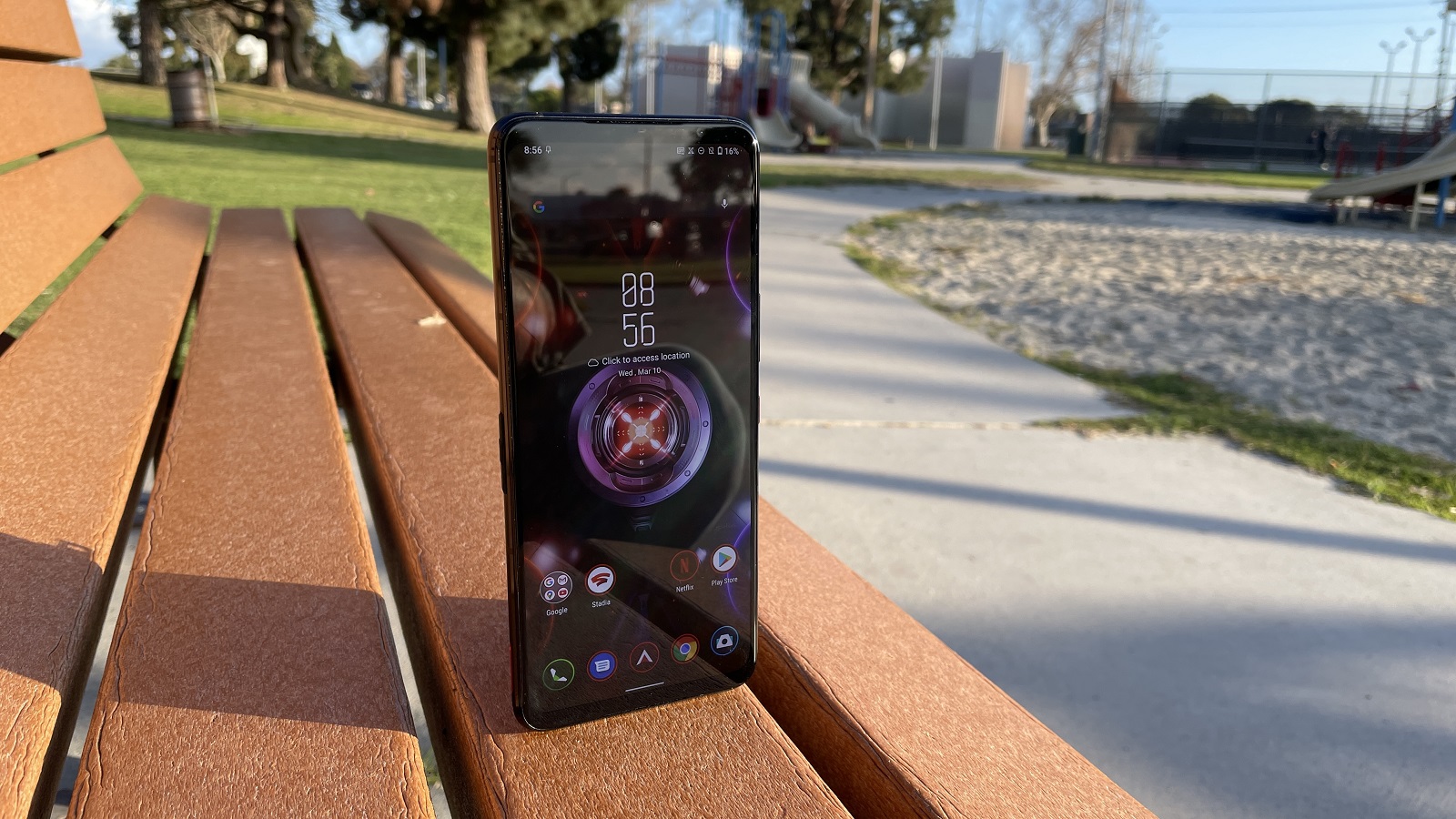
Display
The Asus ROG Phone 5 has a 6.78-inch 1080 x 2448 AMOLED screen, with 395 pixels per inch, a 144Hz refresh rate, and HDR10+ support.
The Samsung Galaxy S21 meanwhile has a 6.2-inch 1080 x 2400 AMOLED screen with 421 pixels per inch, a 120Hz refresh rate, and HDR10+ support. So their resolutions are similar, but the Samsung Galaxy S21’s screen is substantially smaller – and therefore also has a slightly higher pixel density.
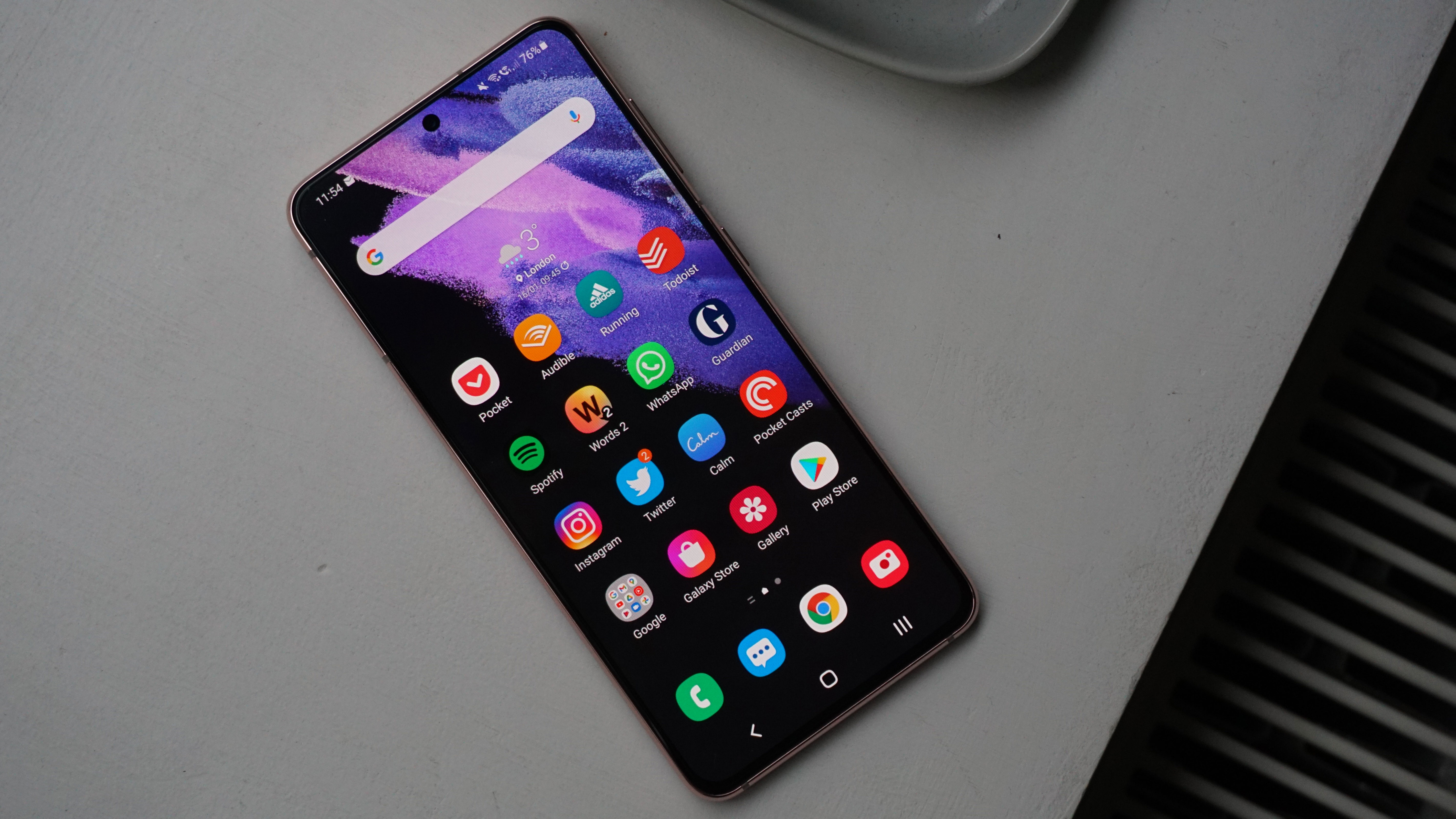
Both phones have high maximum refresh rates, but the ROG Phone 5 has the edge there, and it also has a likely higher touch sampling rate of 300Hz. This is the number of times a screen looks for a touch input per second, and a high rate is important for gaming. Samsung doesn’t appear to have specified the touch sampling rate on the Galaxy S21, but the S20 range has a 240Hz touch sampling rate.
Both the Samsung Galaxy S21 and the Asus ROG Phone 5 have a flat screen though, and both use Gorilla Glass Victus, so they’re similarly well protected against drops. They also both have an in-screen fingerprint scanner.
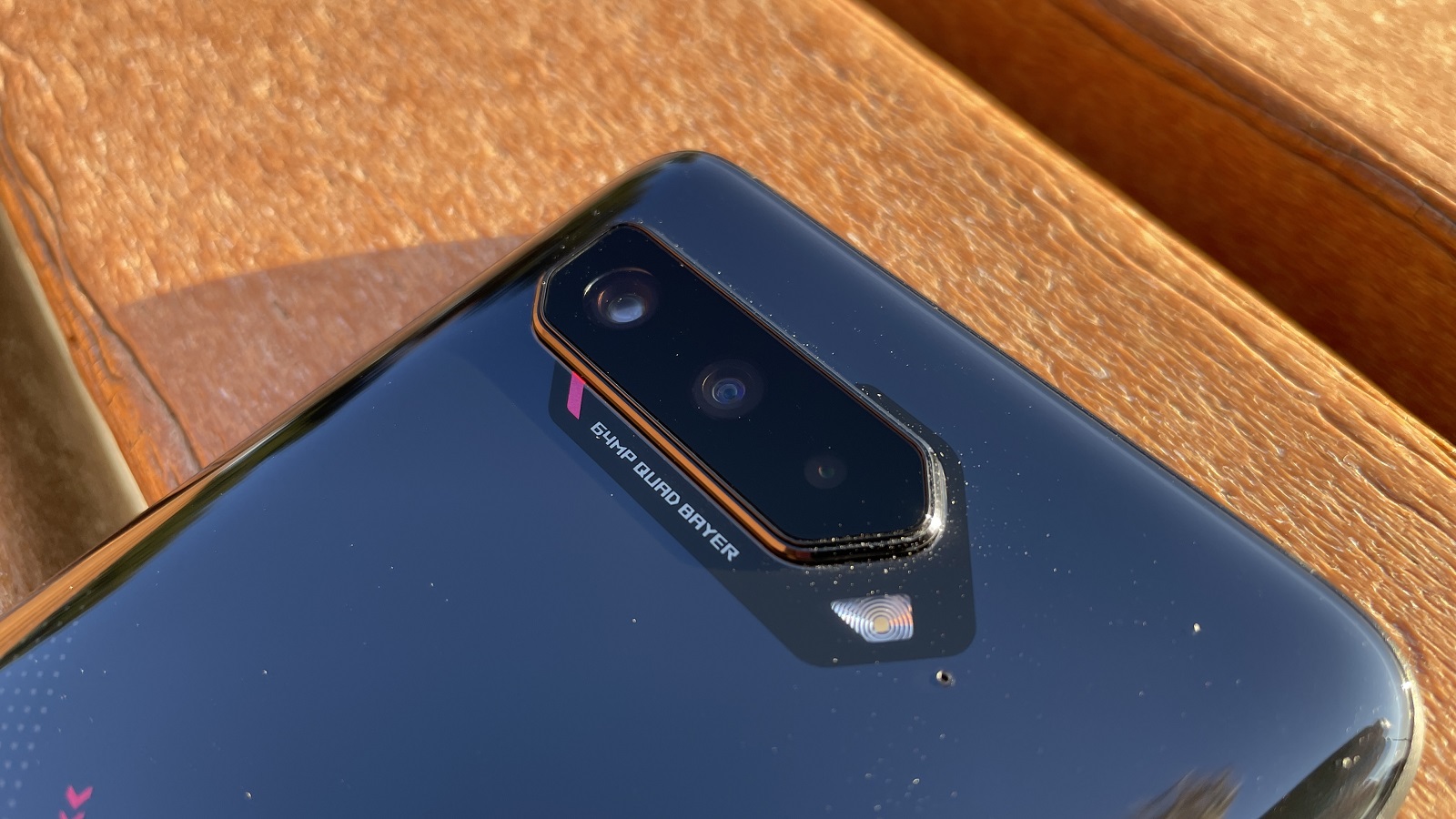
Camera and battery life
As the Asus ROG Phone 5 is primarily a gaming phone, you might expect that the camera would be an afterthought, but on paper at least it sounds solid. The phone has a 64MP f/1.8 main camera, a 13MP f/2.4 ultra-wide one, and a 5MP f/2.0 macro one, as well as a 24MP f/2.45 front-facing snapper.
The Samsung Galaxy S21 meanwhile has a 12MP f/1.8 main camera, a 64MP f/2.0 telephoto one (with 3x hybrid optical zoom), and a 12MP f/2.2 ultra-wide one, plus a 10MP f/2.2 camera on the front.
Both phones can also shoot video in up to 8K quality, with the Galaxy S21 doing this at 24fps, while the ROG Phone 5 does it at 30fps.
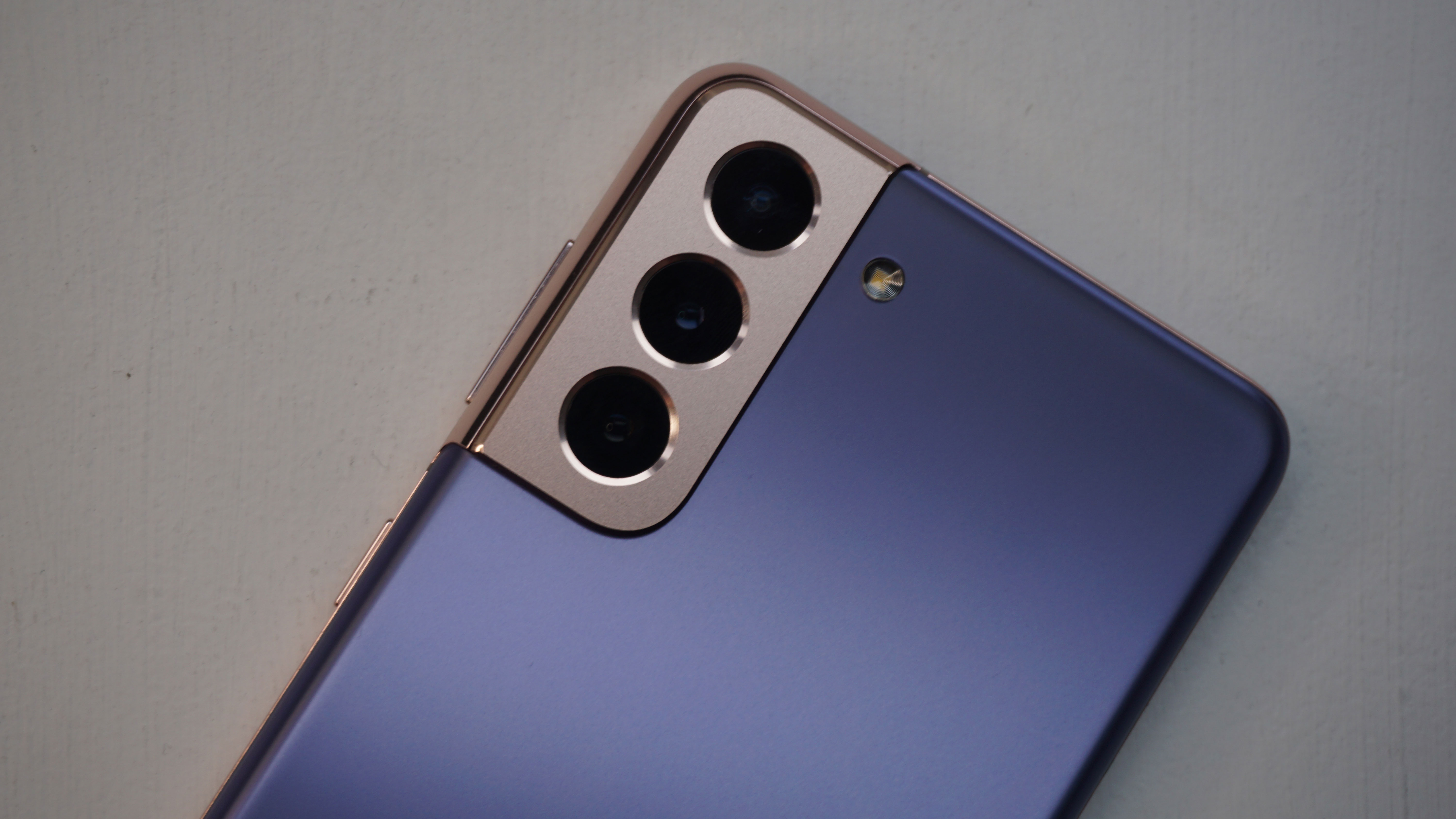
In practice we were reasonably impressed with the cameras on the Galaxy S21, and its telephoto camera is arguably more useful than the macro one that the ROG Phone 5 has instead, but that will be somewhat subjective.
On the battery capacity front, the Asus ROG Phone 5 is the clear winner, with a massive 6,000mAh one, compared to just 4,000mAh in the Samsung Galaxy S21.
The ROG Phone 5’s battery also charges faster, as it supports 65W charging (getting it from zero to 100% in 52 minutes), and it comes bundled with a 65W charger. The Galaxy S21 on the other hand tops out at 25W charging and doesn’t come with a charger in the box – though it also supports wireless charging, which you don’t get with the ROG Phone 5.
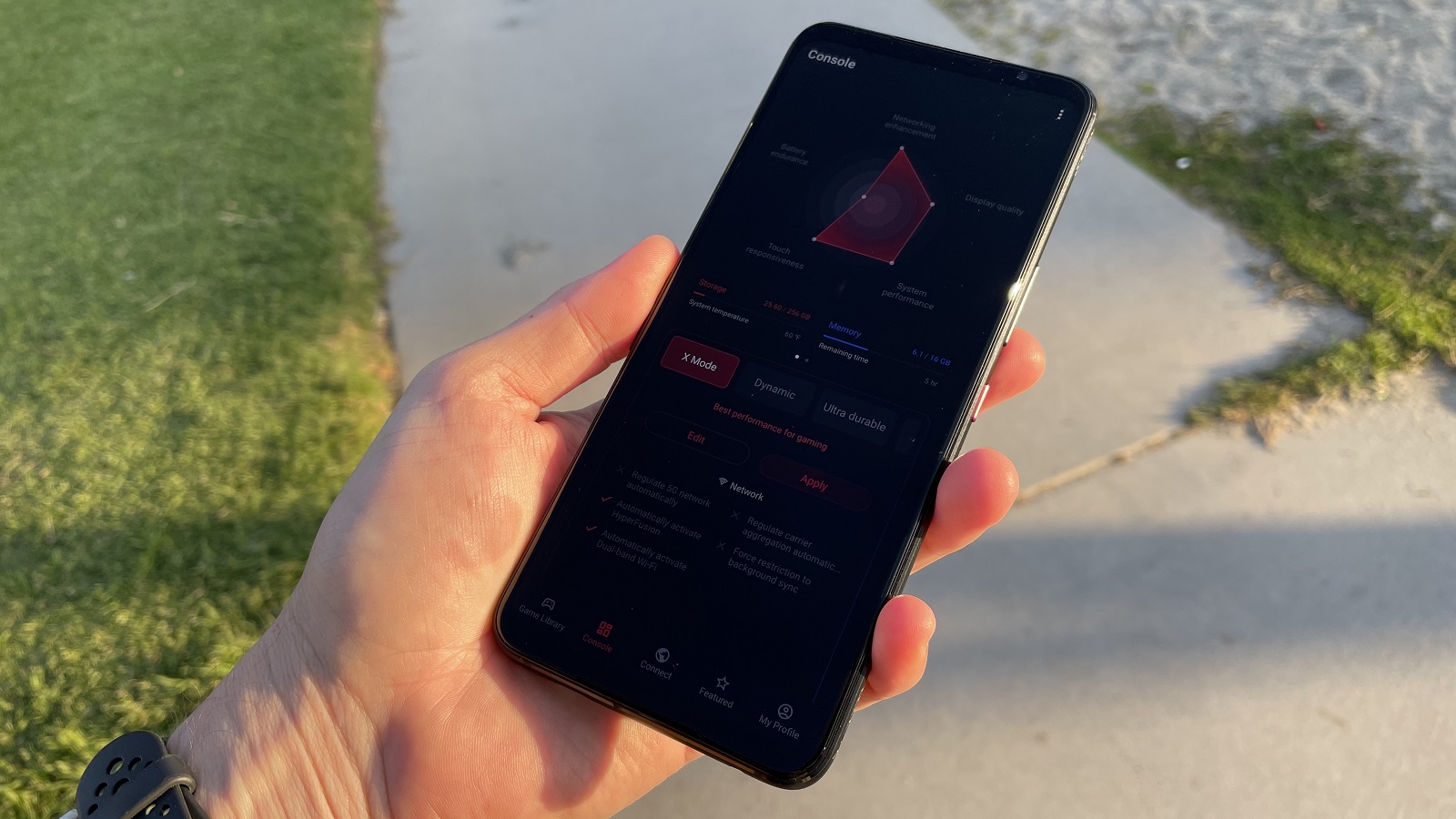
Specs and features
Both of these phones are packed full of power, but the Asus ROG Phone 5 has the edge. It has a top-end Snapdragon 888 chipset paired with up to 16GB of RAM, whereas while the Galaxy S21 has the same chipset (in some regions anyway, with others getting the comparable Exynos 2100), it only has 8GB of RAM.
As a gaming phone, the ROG Phone 5 has additional features to help you make the most of its power too, such as AirTriggers, which provide off-screen buttons to use in games. It also supports a range of optional gaming accessories.
Both phones have up to 256GB of storage and support for 5G though, and neither of them have a microSD card slot. They also both run Android 11.
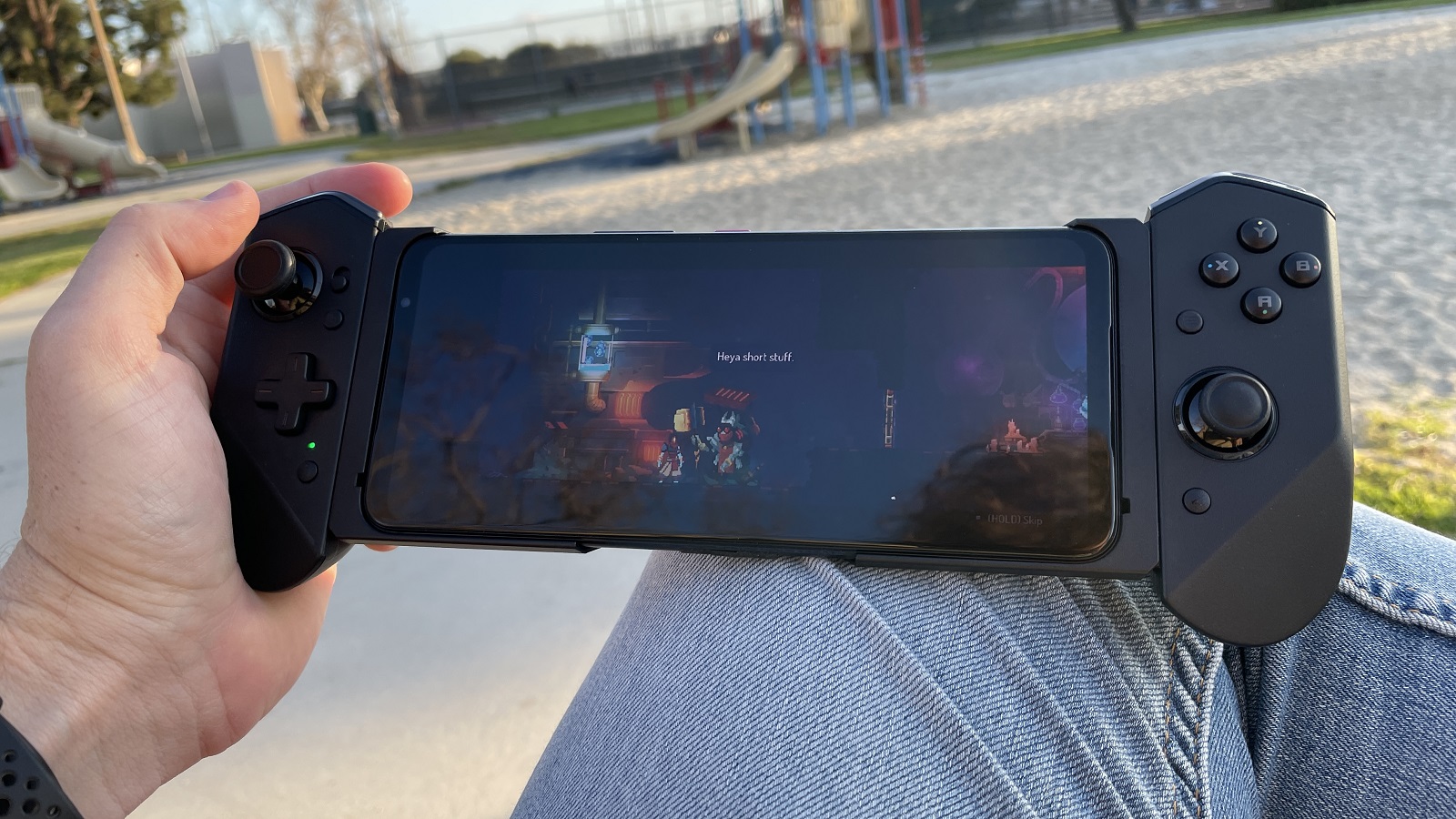
Price and availability
The Asus ROG Phone 5 is due to land before the end of March, and starts at 799 euros (around $950 / £685 / AU$1,235) for 8GB of RAM and 128GB of storage, rising to 899 euros (roughly $1,070 / £770 / AU$1,390) for 12GB of RAM and 256GB of storage, and 999 euros (approximately $1,190 / £855 / AU$1,540) for 16GB of RAM and 256GB of storage.
The Samsung Galaxy S21 meanwhile is available now, starting at $799 / £769 / AU$1,249. That gets you 128GB of storage, while for 256GB you’re looking at $849 / £819 / AU$1,349.
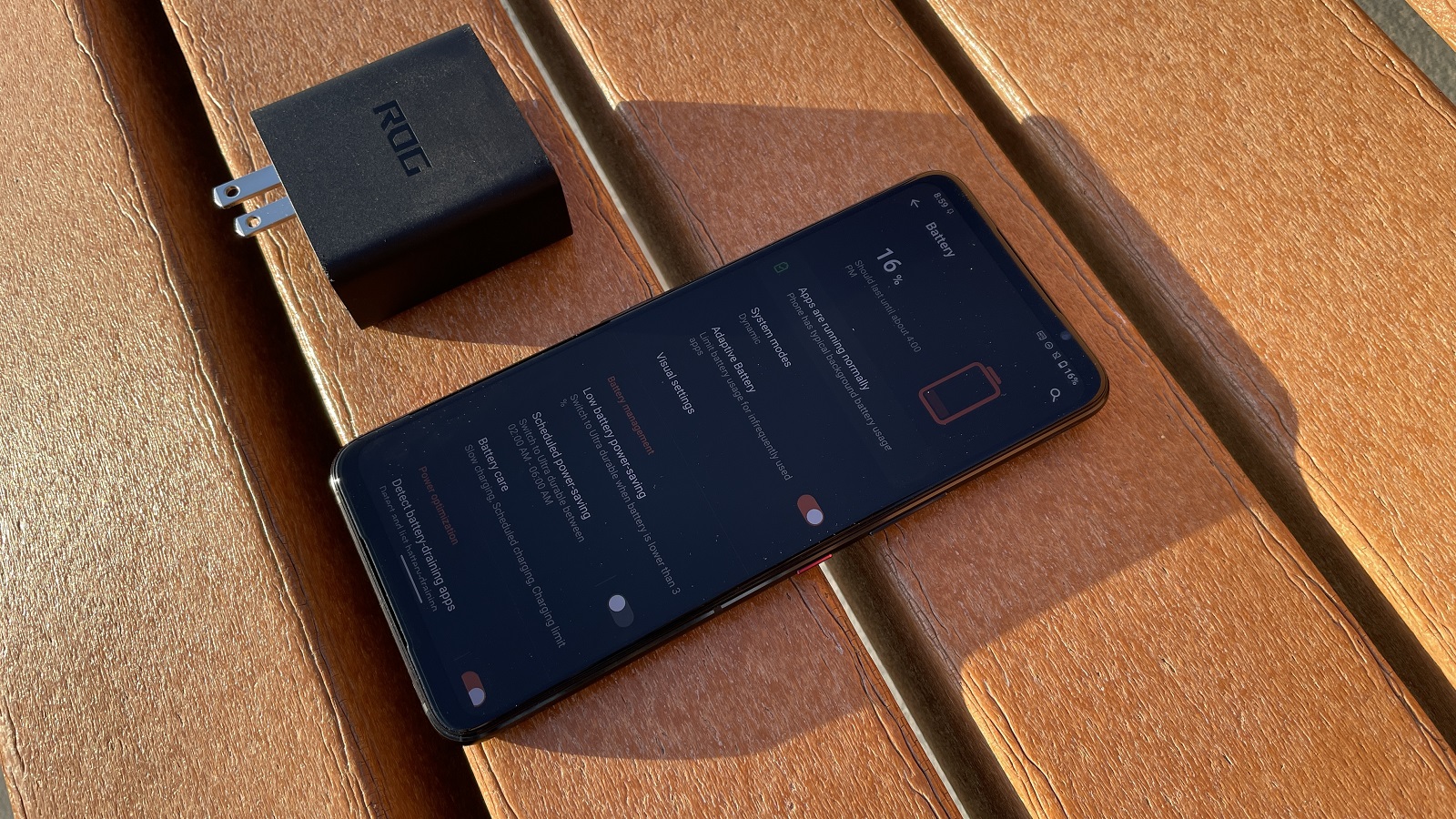
Takeaway
The Asus ROG Phone 5 has a lot going for it, with its refresh rate, RAM, battery size, charging speed, and glass back all being better than what the Samsung Galaxy S21 offers. It also has a bigger screen, some useful gaming features, and roughly matches the S21 in most other ways, such as resolution, storage, and 5G support.
That said, the flashy design and RGB lights on the ROG Phone 5 certainly won’t appeal to everyone, and while it has the same number of cameras as Samsung’s phone, it lacks a telephoto snapper. It’s also bigger, thicker, and doesn’t have the IP rating found on the Galaxy S21, so you probably shouldn’t get the ROG Phone 5 wet.
In all then, there’s enough going in each phone’s favor that there’s no clear winner when looking purely at specs. Which phone will be best for you will likely depend on what you most care about in a handset.
- Does the ROG Phone 5 rank among the best gaming phones?
from TechRadar - All the latest technology news https://ift.tt/3rOKJE9
No comments:
Post a Comment